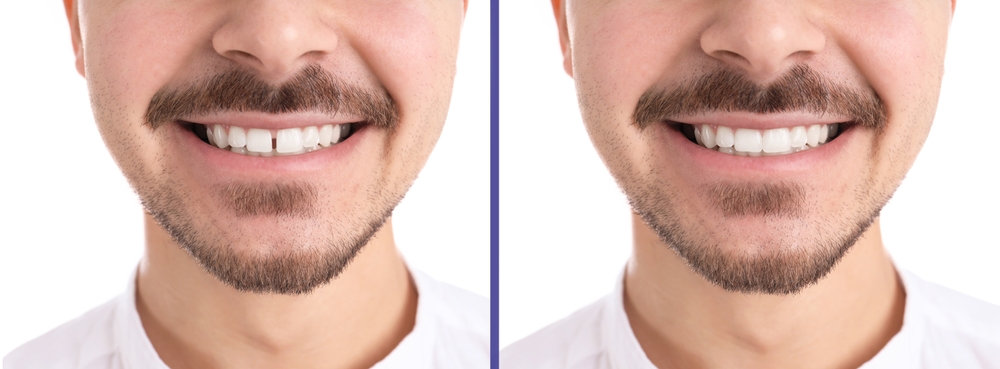Oatlands Dental – Space Between Teeth
Some of us have a gap between our front teeth. Some of us have gaps between several of our teeth. This may have an effect on our appearance, perhaps even a good effect, though usually it does not really affect our health.
The technical term for spaces between teeth is Diastema. There are many possible causes of these gaps. Only rarely is it a sign of an underlying problem. Only rarely does it cause any dental problems.
Oatlands Dental – Causes of Diastema
Children
Children’s teeth often have gaps, both with the baby teeth and the permanent teeth. It is often most noticeable when the gap is front and centre. More often than not these gaps close over time.
There will often be gaps between the baby teeth as the teeth are small and the child’s jaw will need to be large enough to hold the permanent teeth, which are larger. So these spaces often disappear, or end up greatly reduced, when all of the permanent teeth have emerged.
Permanent teeth may have some gaps at first. Often, but not always, these will disappear when the canine teeth emerge.
Thumb Sucking that persists past the age of 4 can lead to the front teeth being forced apart. Children need to be discouraged from thumb sucking before this age.
Small Teeth, Wide Jaw.
Our teeth might not be in proportion to our jaws. If the permanent teeth are small they will leave gaps. The opposite problem is actually more common, larger teeth that crowd the mouth.
There are a few methods to fix small teeth, such as wide veneers or crowns.
Lost or missing Teeth
Occasionally we are short of one tooth – it just never formed. Or we might lose a tooth through an injury. This can be an issue as the adjacent teeth tend to move into the gap where the tooth should be. A dental implant or a dental bridge can rectify this problem.
Infections
Gum disease can cause the gums to recede, leaving gaps between the tops of the teeth. This is a situation we should avoid, as gum disease is hard to cure. We should prevent the chance of developing gum disease by diligently cleaning our teeth.
Oatlands Dental – Fixing Gapped Teeth
Orthodontic braces can fix many teeth alignment issues, including many minor gap problems. But there are limitations. If all the teeth are small and there are many gaps the braces will not have enough to work with. In this case it is far better to have the teeth altered with veneers or implants.
Veneers are porcelain covers permanently attached to the front of teeth. These veneers can be made slightly wider than the natural teeth, neatly filling the gaps. This is a good option at a moderate cost, as the veneers look very realistic, and will always have a healthy white colour.
An alternative veneer is made of resin, matched to the natural colour of the teeth.
Crowns or implants can replace teeth. This is very effective, but it is a more expensive option.
Oatlands Dental
Gaps between teeth are usually not serious. But if you feel they affect you appearance there are many options available from the dentist.










